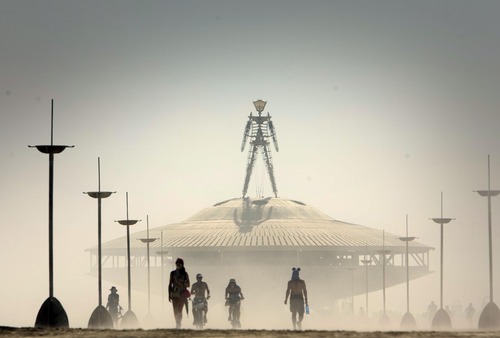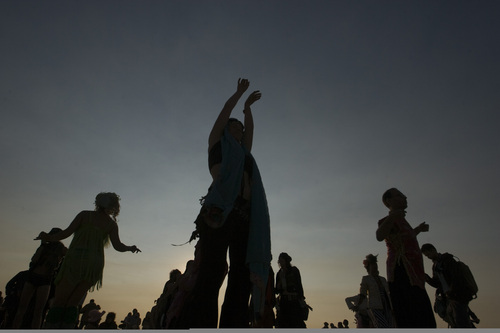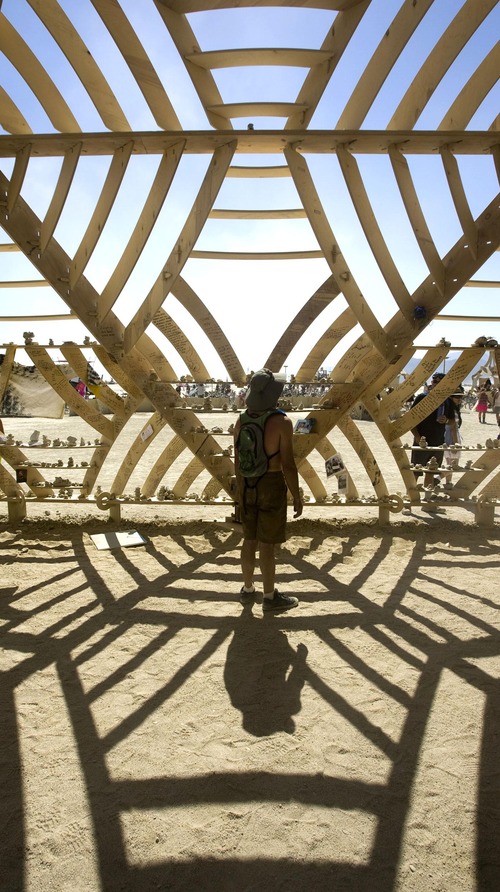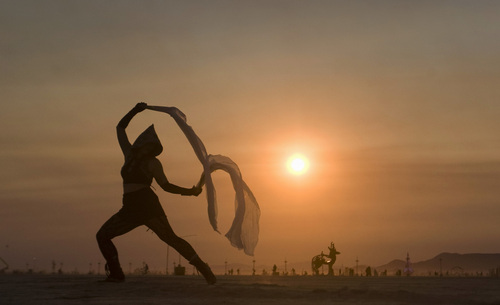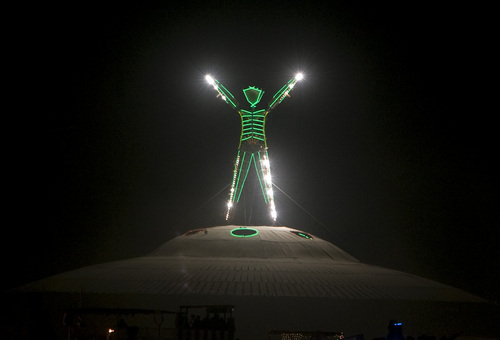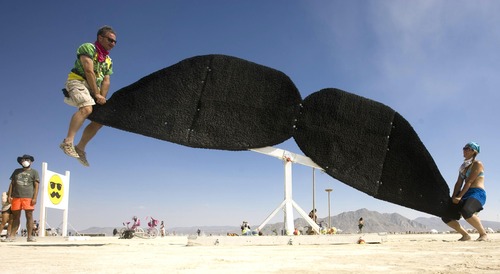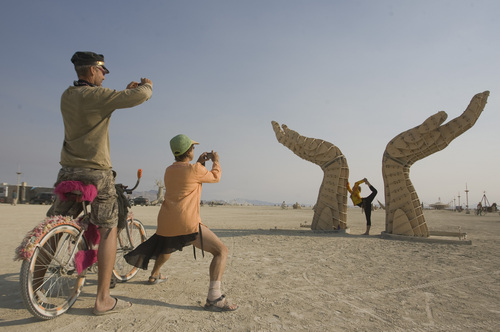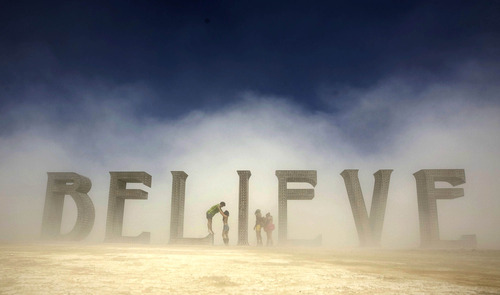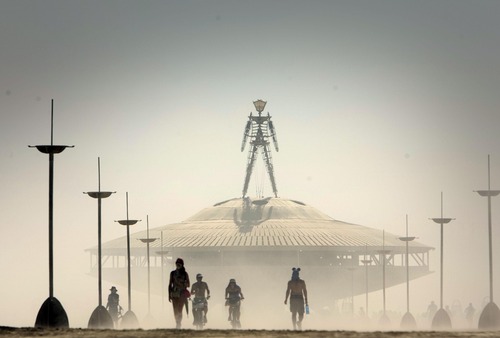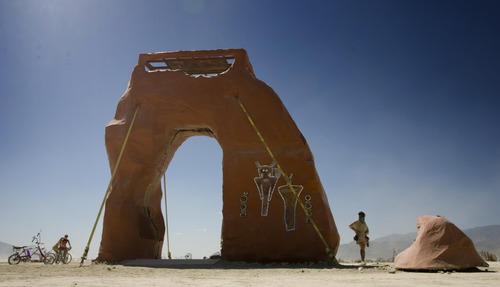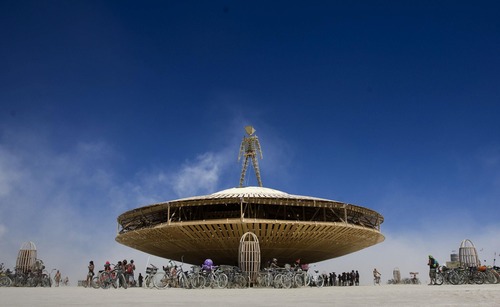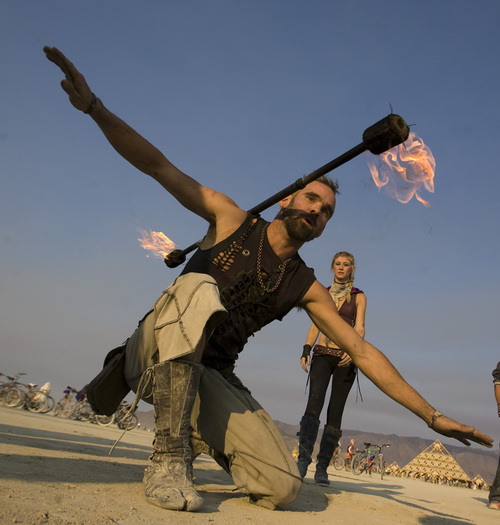This is an archived article that was published on sltrib.com in 2013, and information in the article may be outdated. It is provided only for personal research purposes and may not be reprinted.
Reno, Nev. • Burning Man organizers have agreed to pay the Pershing County Sheriff's Office more than $600,000 a year over the next 10 years for security and other services at the annual counterculture festival in the Black Rock Desert.
Black Rock City LLC, the San Francisco-based company behind Burning Man, also agreed to take out a $1 million insurance policy for the event and reimburse the sheriff and district attorney for costs related to prosecuting crimes at the festival, according to court documents filed in U.S. District Court in Reno last week.
The new agreement is intended to settle a lawsuit Black Rock City filed against the county a year ago challenging the constitutionality of a new county ordinance that requires the company to pay a $1.50-per-head fee for festivalgoers.
U.S. District Judge Robert C. Jones has scheduled a hearing in Reno Nov. 18 to consider Black Rock City's motion to dismiss the lawsuit based on the new agreement. Pershing County is not contesting the motion.
The deal comes after Assemblyman David Bobzien, D-Reno, introduced a bill in the Legislature earlier this year seeking to prevent local governments from imposing fees on any gatherings already permitted on federal lands. The measure eventually was amended and signed into law, authorizing local governments to sign agreements with event organizers exempting them from other county ordinances and negotiated reimbursement for services.
Pershing County District Attorney James Shirley and county commissioners signed the new 10-year agreement Oct. 6, along with Raymond Allen, legal affairs manager for Black Rock City.
Under the deal, the payments to law enforcement will be based on a sliding scale depending on the peak attendance at the event that runs for eight days through Labor Day weekend about 100 miles north of Reno.
Last year's peak attendance was an estimated at 68,000, up from about 58,000 the year before.
Under the fee schedule, Black Rock City would pay $605,000 for crowds of fewer than 60,000 — $230,000 to the county for services it provides jointly with the U.S. Bureau of Land Management and $375,000 for services it alone provides. The total climbs to $640,000 for peak population between 60,000 and 70,000 and rises as high as $975,000 if the peak surpasses 90,000. The scale also allows for increases to adjust for inflation.
The gathering, which draws people from around the world, is the largest permitted event on federal land in the United States.
After it moved from San Francisco's Baker Beach, the inaugural Burning Man in Nevada drew about 80 people in 1990. The first 1,000-plus crowd was in 1993, and attendance doubled each of the next three years before reaching 23,000 in 1999. The crowd was capped at 50,000 under a five-year permit that expired in 2010. The current permit allows a maximum crowd of 70,000, but organizers applied for a cap of 68,000 before this year's festival.
Lawyers for Black Rock City filed the lawsuit in Reno in August 2012 accusing Pershing County of violating their First Amendment rights by imposing fees for visitors to the event on BLM land.


